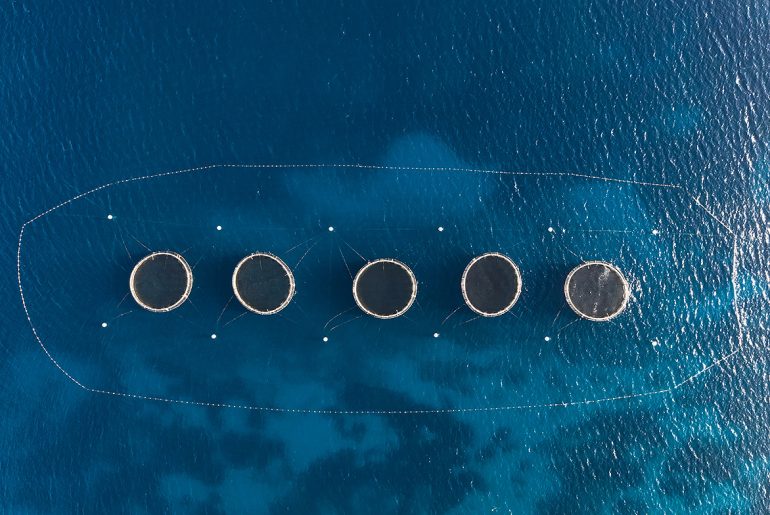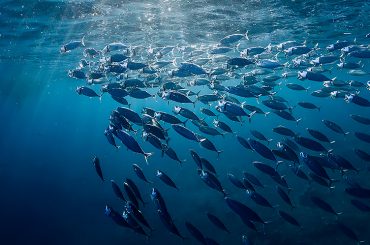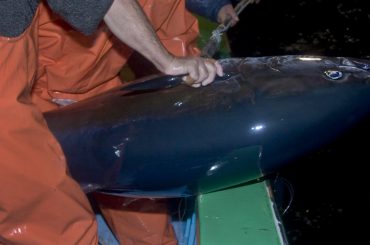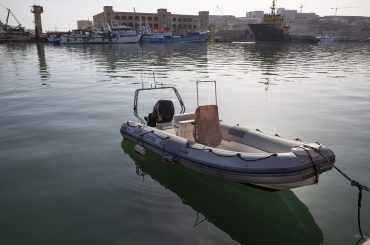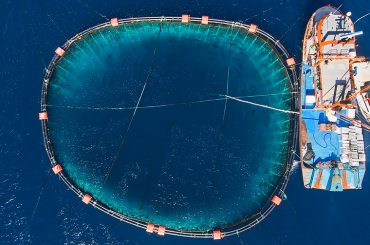No agreement has been clinched that would allow artisanal fishermen this season to catch dorado (lampuka) and other fishes near tuna cages at Is-Sikka tan-Nofs, a rich fishing area that has long attracted fishermen.
Is-Sikka tan-Nofs, a natural underwater reef situated around 6km off the Marsascala coast, has historically been rich for demersal fishes (species that live at the bottom of the sea).
Tuna farms were relocated to the area in 2016 and, ever since, the detritus or remains of fish fed to tuna washing out of the floating cages have been attracting other fishes during the tuna fattening season in part of summer and autumn. Dozens of fishermen, most of them part-timers, fish in the area for a range of species, including dorado (lampuka) and octopus.

But for the past few years, three of the four farms at Is-Sikka tan-Nofs have been putting floating barriers around the farms to prevent fishermen from getting close to the cages. This measure was taken reportedly due to theft of tuna from the cages.
Fishermen said that this has limited or curbed their ability to catch the fish that scavenge close to the cages. They also expressed indignation at being restricted in an area where they have been fishing for generations, arguing that it is unfair to be restricted simply because of the farms’ relocation and any ensuing theft which the fishermen had nothing to do with.

Parliamentary secretary Alicia Bugeja Said told a group of journalists last June of discussions with the “Federation of Aquaculture Producers to have a Memorandum of Understanding that would allow fishers to start fishing there.” That was in the middle of June. Asked whether an agreement would be in place for the dorado fishing season – the fishermen catch dorado there with lures – a spokesperson for Bugeja Said said earlier this month that “discussions with the tuna farms are in progress.”
The group of journalists, including myself, have been investigating the tuna fishing industry in the Mediterranean.
Last June Bugeja Said said that during discussions the fishermen were told that they could not have gear that could target tuna at Is-Sikka tan-Nofs. The fishermen said that this is an arbitrary and unfair restriction.
They also said that they see fishermen fishing within the roped area, either fishermen employed by farms or under permission by the farms’ management, and that this is unfair for fishermen who have historically fished in the area.
“The barrier started [sic] in the first instance,” Bugeja Said told the group of journalists, “because there was theft of tuna from the cages. So sometimes the big industries are being demonized, but no one says that these big companies are employing fishers as well during the low season. So a number of fishers who have boats also work on the fish farms during the low season. And they have jobs there and their sons are working with them.”
Although around 200 people are employed by the tuna fattening farms, sources have said that the overwhelming majority of these are low paid, unskilled foreigners from underdeveloped countries, and that only a few Maltese fishermen and their sons are employed by the farms.
Moreover, peak work at the farms is during the fattening and slaughtering period in part of summer and autumn, which overlaps with the peak fishing season. In the low, winter season, work is limited and it mostly involves some maintenance, mending, and repainting.
In a paper published in an international journal called Sustainability Science in 2020, Bugeja Said wrote that small-scale fishing communities are struggling to survive due to various factors, including governments “encouraging new uses to proliferate on hitherto indigenous fishing grounds in the coastal zone” – among these new uses she mentioned fish farming or aquaculture.

She wrote that some of the artisanal fishermen in Malta, in a bid to survive, have been joining “the large vessels as employees, while others are now employed at the tuna ranching farms, on a payroll that does not equate to the income of being independent fishers.”
A month ago, Bugeja Said attended the funeral of a veteran Marsaxlokk fisherman who used to fish regularly at Is-Sikka tan-Nofs area. He had also been complaining about the barriers put around the tuna cages for a few years.
During the interview with the group of journalists, Bugeja Said took credit for the abandonment of plans for a separate aquaculture zone off the northeast coast of Gozo.
She said: “When I was appointed Parliamentary Secretary for Fisheries and Aquaculture and I saw that [planning] application, I was like, ‘Do we need more farms?’ Maybe we reached capacity. So I stopped that process.”
The new aquaculture zone was in large part intended to accommodate the relocation of the tuna farm cages of AJD Tuna, as well as provide room for further expansion of tuna fattening operations and, potentially, farming of amberjack.
“I think the coastal area has more than enough aquaculture in it,” Bugeja Said added. “We're already congested, I think. There's tourism, there's transport, there are different sectors of fishing activity.”
Yet Bugeja Said did not exclude further expansion of aquaculture facilities further offshore in the future.
“I am not a technologist or an engineer,” she elaborated, “but from my general knowledge, I know that in foreign countries where they have offshore farms, they have to build the whole system there. People would need to sleep there because it does not make sense to commute on a daily basis to and fro from the farm. It is like the oil rigs, right? They have to build facilities. This is something that has not yet happened in aquaculture, but there is potential in that.”
She clarified that she was not just referring to tuna farming – and that any expansion in tuna farming capacity is in any case dependent on EU regulations or approval – and mentioned other possible candidate species for offshore farming facilities such as red snapper and sea bream.
Bugeja Said is currently being investigated by the Commissioner for Standards in Public Life at the request of Arnold Cassola, an independent politician.

Cassola’s report was over an event called Swimming with Tuna, in which employees of the Ministry for Agriculture, Fisheries, and Animal Rights were invited to swim with tuna in the cages at an unspecified tuna farm. The email sent to ministry employees, leaked to Cassola, said that “Parliamentary Secretary Alicia Bugeja Said has the pleasure to invite all Ministry employees for a unique experience towards a good cause to help abandoned animals.” Employees were asked to donate €10.
In his email to the standards commissioner, Cassola claimed that since Bugeja Said could only organize such an event in collaboration with tuna farming operators, this creates a conflict of interest with her regulatory role. He also claimed that although the event could have a “good aim, the ulterior aim is political exposure” – and in that sense, Cassola alleged, using the email data of the ministry employees constitutes a breach of ethics.
Asked by this website if she would like to comment on Cassola’s complaint, Bugeja Said said: “Since the standards commissioner is investigating the matter, I would rather not comment at this stage.”
This website also asked the fisheries department’s spokesperson via email how many of the ministry’s employees attended the event, and in which tuna farm or farms the event took place. That email remained unanswered.
Bugeja Said had last year also faced media scrutiny on potential conflict of interest after she declared, in the obligatory electoral campaign declaration, having received €4,000 in donations for her electoral campaign from two of the tuna farms. At the time she had said that she did not feel there was any conflict of interest, and she should be judged by decisions she would taking as a junior minister responsible for fisheries and aquaculture.
Featured image: Aerial view of tuna farm. Photo credit/copyright: Karina Movsesyan - stock.adobe.com

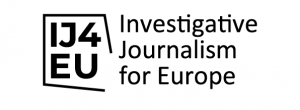
The production of this investigation is supported by a grant from the IJ4EU fund.

